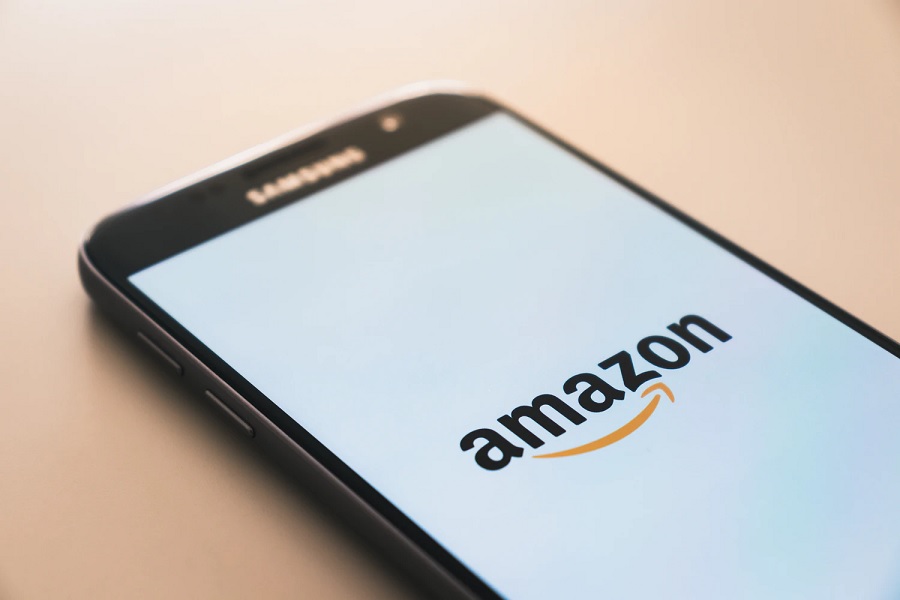The charger and battery maker RavPower is the latest major Amazon seller to be removed from the platform. The move was followed by an official statement where the e-commerce giant reiterated its commitment to eliminate fake product reviews.
Amazon confirmed RavPower’s removal from its online store on Wednesday. It is worth noting that the delisting of RavPower products happens just a few days after Nicole Nguyen’s Wall Street Journal article tackled the rampant “fake reviews and inflated ratings” on the e-commerce platform.
Nguyen shared her experience after ordering a two-port RavPower fast charger on Amazon that had a five-star rating from more than 9,000 reviews. When the product arrived, it came with a $35 gift card. Both sides of the card do not deliberately tell the customer to post a product review. But the instructions to redeem the reward include posting a product review.
Following my fake review story, listings for Amazon-native electronics brand RAVPower are gone.
— nicole nguyen (@nicnguyen) June 16, 2021
The company offered $35 gift cards for reviews on a product that was sold directly by Amazon itself. RAVPower acted as a wholesale vendor on that listing.https://t.co/6nazZZ5Wtb pic.twitter.com/znp9u48YHV
The back of the gift card has a QR code that the customer could scan to redeem the $35 credit. The card also asks the buyer to provide their order ID and a screenshot or URL of the review they posted. Amazon does not allow incentivized reviews since October 2016.
In a statement published on Wednesday, Amazon did not directly mention RavPower or any delisted seller, but the company reiterated its goal of eliminating fake reviews. Amazon said it reported more than 300 social media groups in the first quarter of 2020, which were dealt with by respective companies within 45 days. Those numbers were improved a year later, as Amazon said it reported more than 1,000 groups used for fake review schemes, and social media companies shut them down within five days.
However, Amazon hopes social media platforms would create more ways to detect these transactions and groups on their own. “It is imperative for social media companies to invest adequately in proactive controls to detect and enforce fake reviews ahead of our reporting the issue to them,” Amazon said.
Last October, The Verge reported how solicitors and makers of fake reviews have been transacting through Facebook Groups to avoid detection from Amazon’s system. Many of the related posts encouraged people to buy certain products on Amazon and leave a review that would then have a “Verified Purchase” tag. A refund would then be issued through PayPal, while some of the reported posts also mentioned giving away commissions upon completing the task.
Photo by Christian Wiediger on Unsplash



 OpenAI Expands Enterprise AI Strategy With Major Hiring Push Ahead of New Business Offering
OpenAI Expands Enterprise AI Strategy With Major Hiring Push Ahead of New Business Offering  Nvidia Confirms Major OpenAI Investment Amid AI Funding Race
Nvidia Confirms Major OpenAI Investment Amid AI Funding Race  Instagram Outage Disrupts Thousands of U.S. Users
Instagram Outage Disrupts Thousands of U.S. Users  Tencent Shares Slide After WeChat Restricts YuanBao AI Promotional Links
Tencent Shares Slide After WeChat Restricts YuanBao AI Promotional Links  Amazon Stock Rebounds After Earnings as $200B Capex Plan Sparks AI Spending Debate
Amazon Stock Rebounds After Earnings as $200B Capex Plan Sparks AI Spending Debate  Anthropic Eyes $350 Billion Valuation as AI Funding and Share Sale Accelerate
Anthropic Eyes $350 Billion Valuation as AI Funding and Share Sale Accelerate  Nvidia CEO Jensen Huang Says AI Investment Boom Is Just Beginning as NVDA Shares Surge
Nvidia CEO Jensen Huang Says AI Investment Boom Is Just Beginning as NVDA Shares Surge  Elon Musk’s SpaceX Acquires xAI in Historic Deal Uniting Space and Artificial Intelligence
Elon Musk’s SpaceX Acquires xAI in Historic Deal Uniting Space and Artificial Intelligence  Sony Q3 Profit Jumps on Gaming and Image Sensors, Full-Year Outlook Raised
Sony Q3 Profit Jumps on Gaming and Image Sensors, Full-Year Outlook Raised  SpaceX Reports $8 Billion Profit as IPO Plans and Starlink Growth Fuel Valuation Buzz
SpaceX Reports $8 Billion Profit as IPO Plans and Starlink Growth Fuel Valuation Buzz  AMD Shares Slide Despite Earnings Beat as Cautious Revenue Outlook Weighs on Stock
AMD Shares Slide Despite Earnings Beat as Cautious Revenue Outlook Weighs on Stock  Nvidia, ByteDance, and the U.S.-China AI Chip Standoff Over H200 Exports
Nvidia, ByteDance, and the U.S.-China AI Chip Standoff Over H200 Exports  SpaceX Updates Starlink Privacy Policy to Allow AI Training as xAI Merger Talks and IPO Loom
SpaceX Updates Starlink Privacy Policy to Allow AI Training as xAI Merger Talks and IPO Loom  SoftBank Shares Slide After Arm Earnings Miss Fuels Tech Stock Sell-Off
SoftBank Shares Slide After Arm Earnings Miss Fuels Tech Stock Sell-Off  TSMC Eyes 3nm Chip Production in Japan with $17 Billion Kumamoto Investment
TSMC Eyes 3nm Chip Production in Japan with $17 Billion Kumamoto Investment  Oracle Plans $45–$50 Billion Funding Push in 2026 to Expand Cloud and AI Infrastructure
Oracle Plans $45–$50 Billion Funding Push in 2026 to Expand Cloud and AI Infrastructure 































